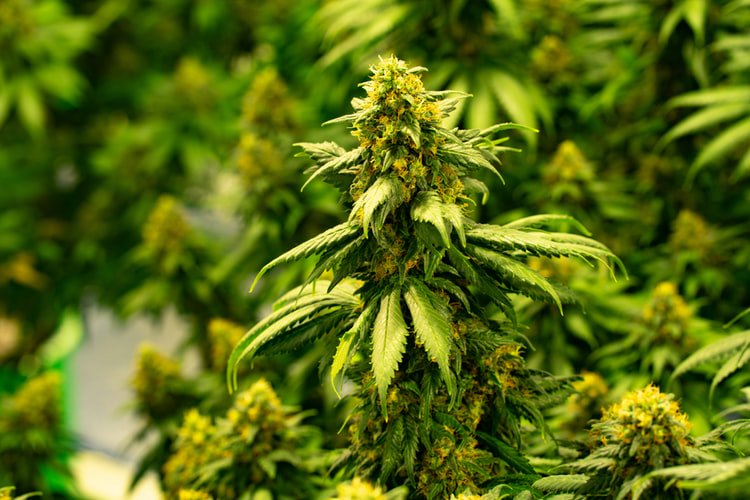My Note
An Easy Technique for BMWO
While the federal laws remain unchanged at tax time dispensary owners, farmers, mandible producers and everyone else in the places with a state-legal medical marijuana industry should be mindful of these changes at tax time.If you are looking for more tips, check out bmwo weed
By law, anyone who brings in business income worth $1 must file a tax return with the IRS. That is when their business deductions are subtracted. Business people using marijuana are no exception. Unless your state has removed medical prohibition, it is the duty of the government to amend unjust federal regulations for its residents and businesses.

A change in those federal laws would save US taxpayers more than $13 billion annually. Time has proven that marijuana isn't a gateway drug, nor does it cause madness as film producers once said it did to thrill their spectators. And if the problem is smoking a medicine, medical users where there are dispensaries have realized that they can also vaporize, eat mandibles, drink juice or other beverages, use tinctures, pills or sprays. Where medical marijuana clubs are open, public use is down.
Deductions are allowed for any other small or large company as they file their federal report to IRS. There are businesses within the states where marijuana is legal for medical purposes which deserve fair treatment. There are 23 states and the District of Columbia currently providing for medical marijuana; certain states collect taxes (or intend to collect taxes) and place the prescription holder in charge.
Such federal regulations must be repealed before the State-legal marijuana entrepreneurs and women can compete equally. A new federal ruling in a federal court in San Francisco blocks the DEA from prosecuting medical marijuana dispensaries if they are sanctioned by the State. The Rohrabacher-Farr Amendment bars the Justice Department (DOJ) from using federal funds to obstruct state drug laws. This 1603-page federal spending report essentially ends the taxpayer's use of the money to block the medical use of marijuana.
All That's Necessary to Understand About BMWO
Most people see opioid abuse as an condition that needs treatment. Many people who suffer from substance abuse are seeing their lives come to a standstill. However, the legalization of medical marijuana has seen the use of medicinal marijuana to treat the untreatable. Research done shows that medical marijuana can be used to treat drug dependence. The study found that cannabis had no physical dependency and was superior to the other drugs. Some of people's drug addictions include alcohol addiction, and opioid substances. Therefore, the question is how effective medical marijuana is in the treatment of such drug addictions. Some of the explanations for medical marijuana being deemed successful include;
Marijuana lacks the properties of dependency
Medical marijuana is medically known for its effectiveness in minimizing chronic pain felt by various conditions in patients. Hence patients use medical marijuana to treat their illnesses as well as the side effects of drugs such as nausea. Such patients reported using medical cannabis to reduce their opioid dose, or to completely replace the drug.

Pain is the primary reason patients are searching for pain relieving alternatives. Opioid substances including heroin are usually readily available to patients and are prescribed to them. Consumption of these medicines is intended for shorter lengths of time, as prescribed by the doctor. Some patients, however, end up taking it without a doctor's prescription. Some often drink a amount greater than recommended. In addition, this overdosage helps these patients accept the pain-relieving effects produced by the opioids. The patients eventually see a need to increase the dose and end up developing a pain relief dependence on the medication.
Marijuana was listed as a substance of schedule-1. Notwithstanding this, there is no evidence describing marijuana as having any habit-forming effects. But marijuana's long-term effects on the human body are still unexplained.
Marijuana replaces illicit drugs and alcohol
Studies of medical marijuana have shown that the drug recently legalized can serve as an alternative to other hard substances. Amanda Reiman conducts a case study of methamphetamine users in San Francisco looking to practice harm reduction. Amanda is the author of a study on cannabis as a substitute for alcohol and other drugs in the Harm Reduction Journal 2009. The methamphetamine users confirmed in their case study that use of marijuana gave them a sense of consciousness. Therefore, the users would choose to sleep and stone, instead of taking meth.
The use of medical cannabis has also resulted in reduced use of other drug substances, such as tobacco, opioids and alcohol. For example, patients who were addicted to alcohol admitted that, unlike alcohol, medicinal cannabis had managing symptoms. Also, unlike tobacco and opioids, marijuana studies do not show any signs of drug addiction and user dependence.